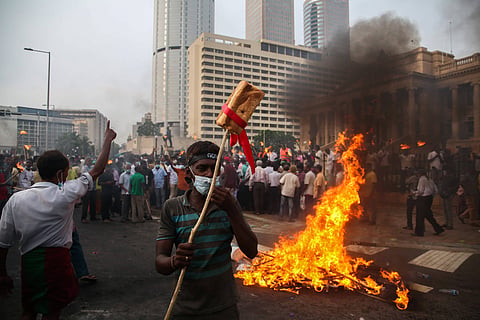The deep roots of Sri Lanka’s economic crisis
TWO YEARS AFTER Sri Lanka’s worst economic crisis since 1948, shortages and queues have ended, the inflation rate is back down to single digits and tourism is rebounding. If you were to believe the US assistant secretary of state Donald Lu, “there is no greater comeback story than the story of Sri Lanka.”
Ranil Wickremesinghe, who became president in 2022 following the ouster of Gotabaya Rajapaksa by a wave of protests now immortalised as the Aragalaya, has been overseeing the implementation of an International Monetary Fund (IMF) programme meant to stabilise Sri Lanka’s economy. The programme – the latest in a long line of IMF efforts that have failed to fix the country’s structural problems – calls for brutal austerity measures and an attempt to privatise the last strategic assets that remained under public ownership after the government’s fire sales in the 1980s and 1990s. Wickremesinghe has indicated that he would like to complete the IMF programme before holding elections due by the end of the year. However, critics have pointed out that the unelected Wickremesinghe and the current parliament – elected in 2019 on a decidedly anti-IMF platform – have absolutely no democratic mandate to carry out the programme’s stipulated reforms.

